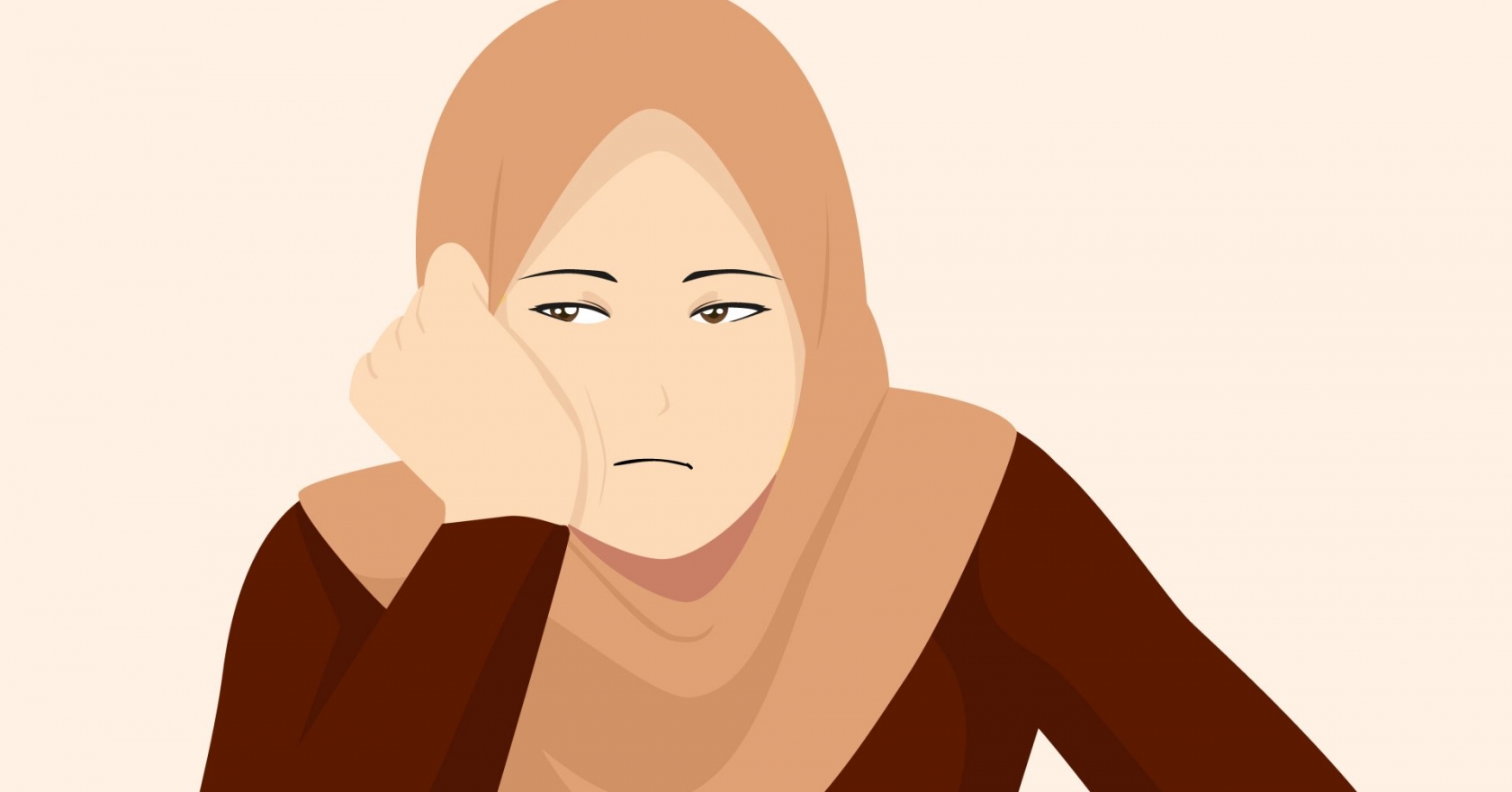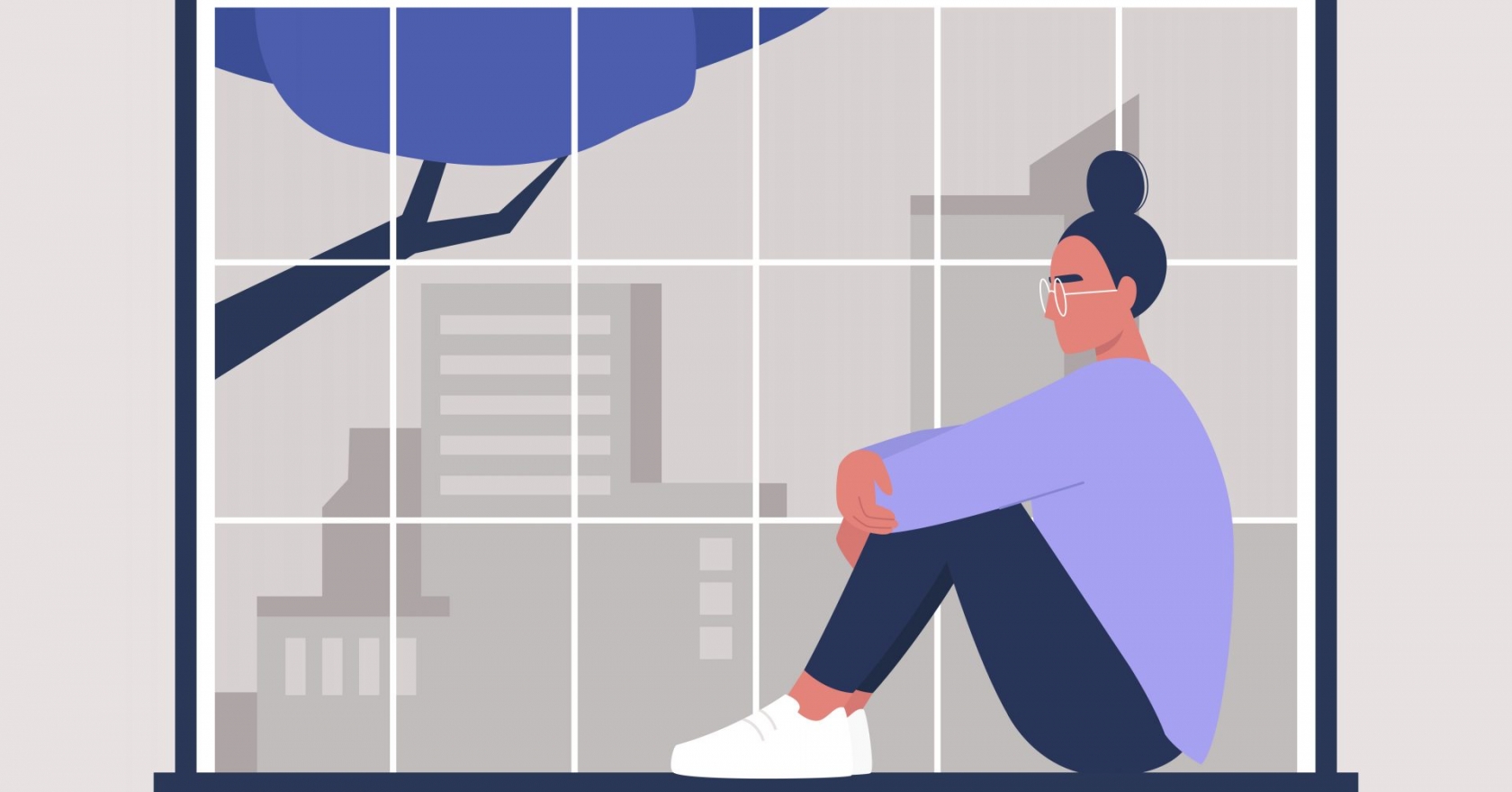Written by Hollie Richardson
Hollie is a digital writer at Stylist.co.uk, mainly covering the daily news on women’s issues, politics, celebrities and entertainment. She also keeps an ear out for the best podcast episodes to share with readers. Oh, and don’t even get her started on Outlander…
Can’t remember the last time you felt excited about the future? A psychotherapist explains why “positive imagery” is a quick and easy tool that will help you feel hopeful again in lockdown.
Last year, when we first eased ourselves out of lockdown, I optimistically booked tickets to go to a festival in Portugal this summer. Since then, it’s been the only future plan I’ve had (aside from oh-so thrilling daily walks). I’ve been dreaming of drinking wine on a sunny balcony by day and swaying along to live music with friends by night.
Of course, with the festival just a few months away and the world still very much being in a pandemic, it’s likely this plan will remain a dream. And while I accept that it’s a small price to pay in the grand scheme of devastation we continue to see, I’m still sad and frustrated that it’s yet another enjoyable thing that’s been taken away from me.
As someone who’s always made sure there’s a holiday, boozy brunch, visit home, big night out, weekend trip to the coast, day at the museum or family event to go to – it just feels like there’s nothing to look forward to anymore. I’ve lost my excitement for life.
Sometimes, when I’m running around the park and a banger blasts through my headphones, I let myself picture a time where I’m wearing a hot pink shift dress, dancing to 70s funk with my friends on a rooftop and drinking an ice cold margarita. I get a warm fuzzy feeling in my stomach as the sun shines on my face and the beat floods my body. But I quickly come back down to reality and the feel-good fire is extinguished. I feel frustrated with myself for teasing such thoughts when they seem like a distant dream. It’s like my body physically won’t let me be hopeful for fun times again.
Because the fact remains that we’re in the second month of our third lockdown in England. Thanks to the icy weather, a more fatal second-wave and the upcoming one year “anniversary” of the pandemic, lockdown fatigue is at an all-time high.
However, it’s been reported that on Monday 22 February Boris Johnson will address the nation about his three-stage “roadmap” to start easing restrictions. This will likely include plans to reopen schools, pubs and restaurants, and non-essential retail over the coming months.
None of us wants lockdown to be lifted too early, but Johnson’s announcement might at least give us reason to start thinking about making life plans again. But, based on everything that’s happened over the last 12 months, I’m definitely not letting myself get too carried away with anything just yet.

When I put this to Michelle Scott, a psychotherapist from The Recovery Centre (TRC), she tells me that, although we all process things individually, it’s understandable that many of us feel it’s safer to not look forward to anything for fear of further upset. This is why we have instead turned to behaviours that “numb us out” or give us instant gratification, such as alcohol, food, social media, binge watching Netflix. “These choices may help us to get through each day but they can leave us disconnected from a sense of purpose and motivation,” she says.
When I tell Michelle about the sunny image that keeps popping into my head when I have fleeting moments of hope about the future, she explains “positive imagery” to me: “It’s a well-established technique that is shown to improve mood and help with a range of conditions including chronic pain.The richer the image the more we can trigger positive feelings based on memories of happier times, so tap into your senses and imagine not only what you see but also the smells, sounds, sensations and feelings.
“Connecting to the version of you that is in a positive situation in the future can help reignite your motivation and remind you of your capabilities.It can also send signals to your survival brain that you are not helpless or trapped and the current situation is temporary.”
When I tell her I’m often left feeling quite sad after these moments, Michelle says: “It is natural that thinking about something that we do not have or have lost can cause mixed feelings.If you find that you become sad, give yourself time to acknowledge this feeling.It can be helpful to remind yourself that all feelings are valid and that sadness is appropriate for the current situation of loss.
She adds: “As with grieving a person, if we can accept our sadness and give ourselves time to process it we can learn to also hold on to the love and happiness we had with that person.Explain to yourself that your sadness is a sign of how much you love the things and people you were imagining.”

Michelle also emphasises that, while we might not know when we will be able to do the things we love again, there is also nothing to say that they won’t ever happen: “It’s more helpful to assess if our thoughts are based on facts or how we feel. Can you take a more reasoned view of your thoughts and talk yourself through it?
“For example, ‘Things are really tough right now and its making me feel down and a bit hopeless. [But] I can’t predict the future so I can’t say that nothing is ever going to happen again: my thinking is being clouded by my feelings.’”
After speaking with Michelle, I’ve realised that it’s not actually farfetched to think about future plans again. So the next time the sun blinds me on a daily walk, I’ll embrace those flashbacks to big nights out and hugging my friends in a beer garden – and I won’t let this damn pandemic rob me of the memories that I live to create more of. And if I shed a tear or two, it’s only because I just can’t wait for the bloody good times that I know are ahead.
Michelle’s tips for embracing excitement in lockdown
- There has been a lot of creativity coming out of lockdown and people are very cleverly adapting their businesses.This means we don’t have to keep finding our own ways to keep entertained at home or feel that we are settling for second best when we would rather be going out. Try Captain Baby’s immersive “party inside” experience or The Mermaid’s Tongue immersive “hunt”.
- We can also take inspiration from others’ enterprise, which can be a real boost to our flagging morale and the boredom we might be finding is making us feel heavy and stuck.
- Focus on what you feel grateful for right now, think about other times your might have felt hopeless or negative and things changed, and connect with someone you trust and share your feelings.
- If you do feel sad or frustrated, use your breath to ground you so that you can stay present and comfort yourself. Speak to a friend, wrap yourself up in a blanket, or hug a pet.
Images: Getty
Source: Read Full Article
